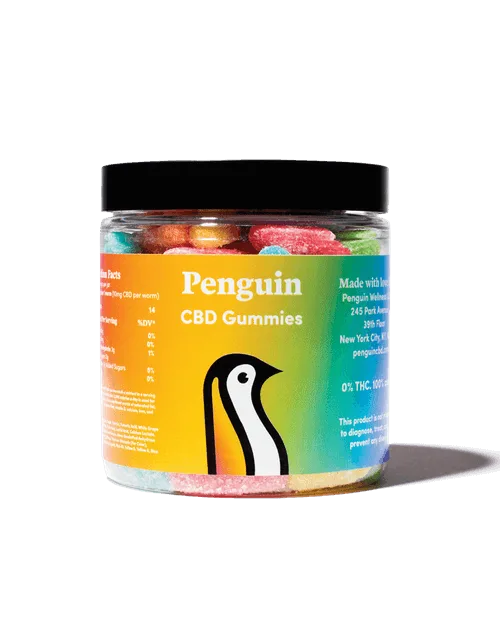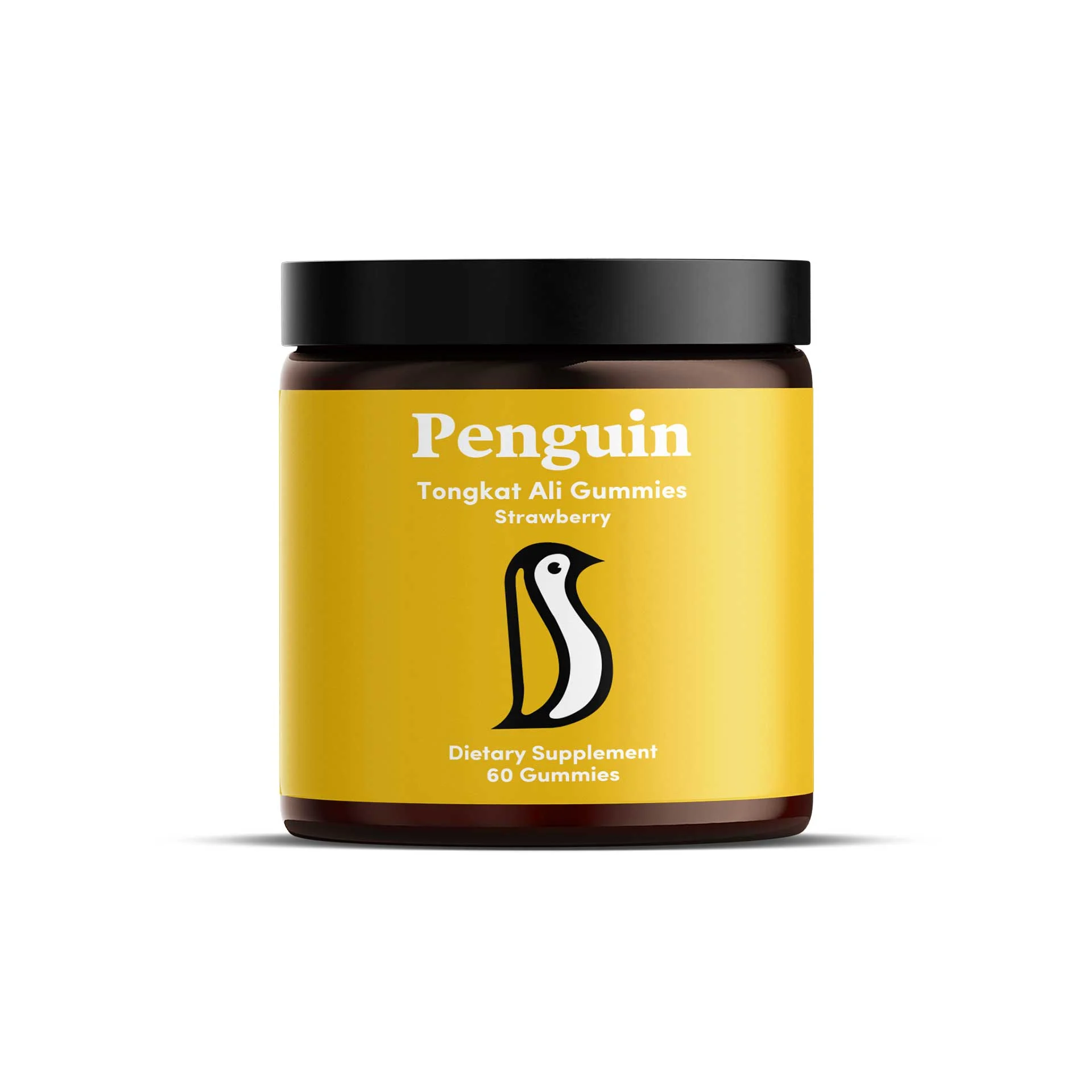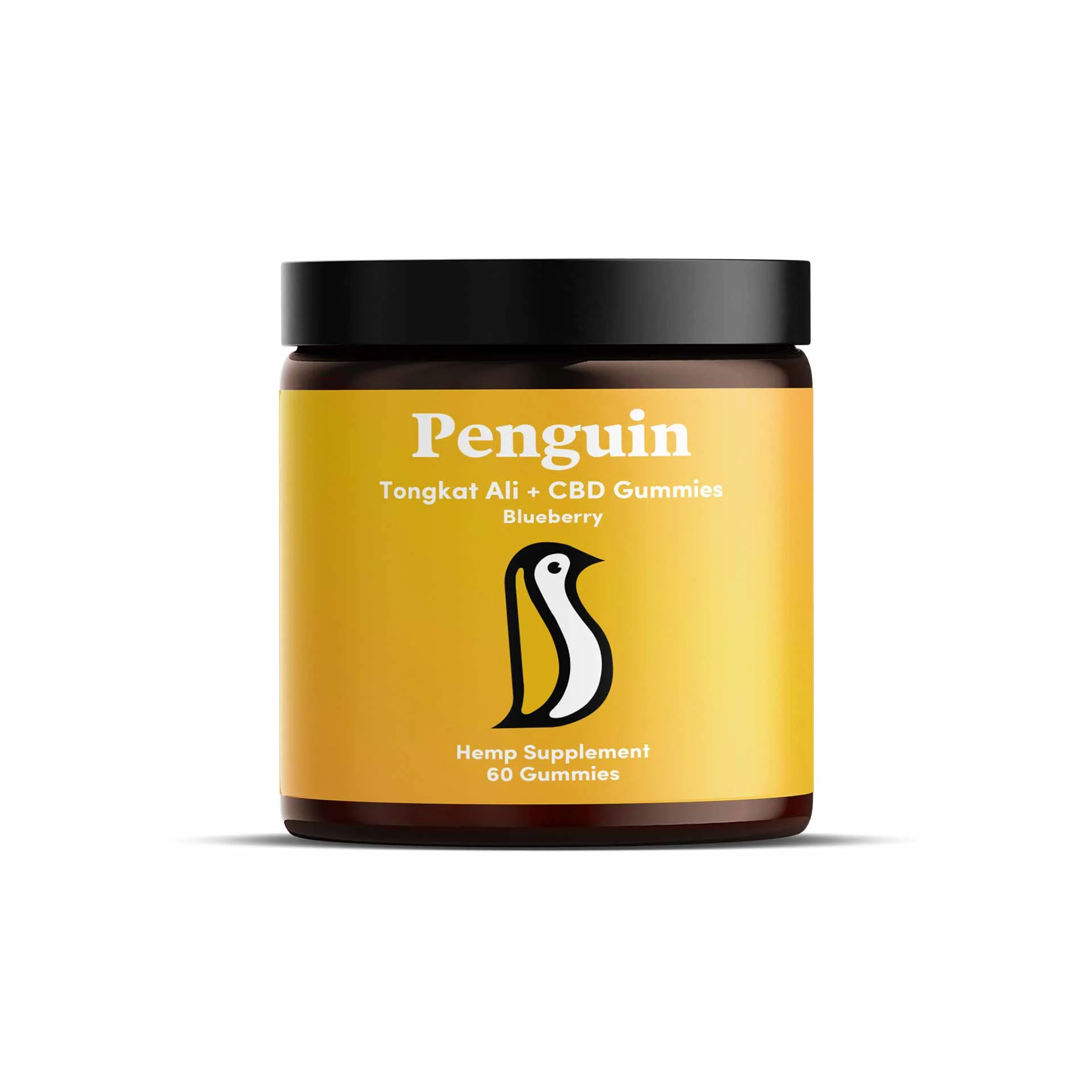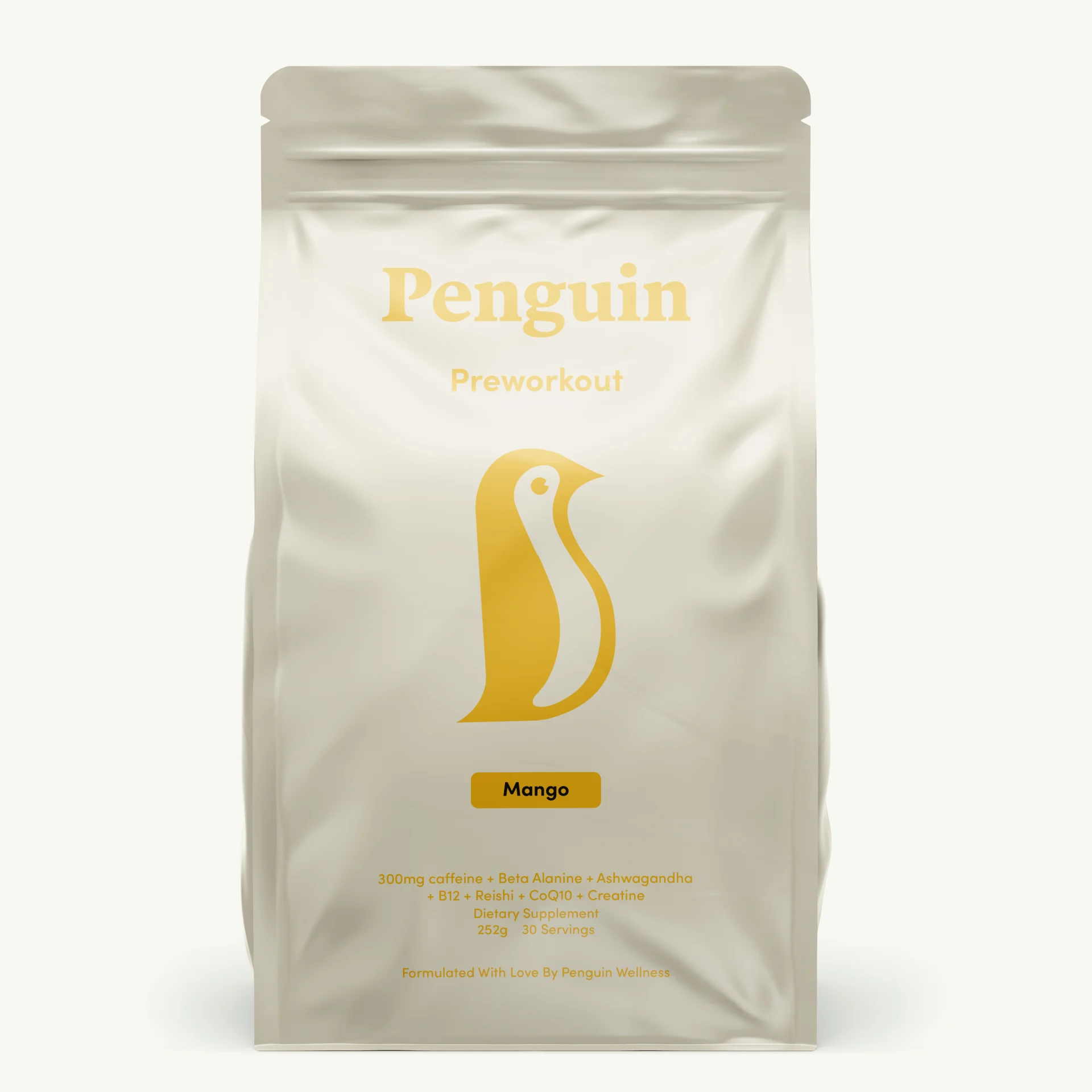How Often Should You Take CBD?
 By Penguin CBD
By Penguin CBDEver since the Farm Bill passed in late 2018, legalizing hemp in the U.S., cannabidiol (CBD) has become increasingly popular. CBD can be derived from hemp or marijuana, two different varieties of the cannabis plant. THC, a psychoactive compound, is the primary active part of the marijuana plant.
CBD is the second most prominent compound in the marijuana plant, but unlike THC, it is nonpsychoactive. Hemp, which contains CBD, was bred by farmers to have 0.3 percent of THC or less.
As mentioned, CBD can come from either hemp or marijuana, but when it comes from marijuana, in order for it to be federally legal, it must be extracted in a way that ensures no THC is left. CBD labeled isolate or broad-spectrum is completely free of THC. Full-spectrum CBD, however, may have small amounts of THC.
CBD may be legal, but products containing CBD have yet to be approved by the FDA. Because of this, how often CBD should be taken as well as CBD dosage can be difficult to determine. There are no medically confirmed guidelines for how often to take CBD.
CBD is largely considered safe to consume, even at high dosages. Right now, a lethal dose of CBD has never been found. Even consistent doses of as much as 1,500 mg a day, which is about 30 times more than the COR standard serving of CBD established by the Canadian government, is safe for humans.
The side effects that can occur from taking CBD are not serious. They include diarrhea, reduced appetite, drowsiness and dry mouth. Furthermore, when side effects occur, which is not very often, they tend to range only from mild to moderate.
How Often Should CBD Be Taken?
There is no universal answer to how often one should take CBD because it depends on the individual, their body and the reason for taking it. Some people choose to take it only when they feel their body could receive help from it, for things like achieving calm, boosting energy or lifting their mood.
Along with many other substances, CBD seems to build up in the body with time. Some scientists believe that regular consumption of CBD leads to an increase in the body’s natural cannabinoid receptors as well as an increase in the efficiency of their endocannabinoid system (ECS).
The endocannabinoid system is recognized by scientists as being responsible for regulating homeostasis in the body and keeping other systems running smoothly. The ECS also seems to interact with neurotransmitters in the brain, which could influence things like mood.
In any case, because CBD may build up in the body, taking it daily instead of just once in a while allows a person to have normal CBD levels in their system, which could make it more effective.
For this reason, CBD users may not experience its effects right away. If you’re just starting to take CBD, it is recommended to take it for at least a week so you can understand how it works for you.
Another factor that can influence how often to take CBD is the method of consumption. CBD can be consumed orally, inhaled, taken sublingually (under the tongue) or used topically. Things like an individual’s weight, metabolism and other body chemistry can influence its effects, as well as how long it takes to feel the effects.
Taking CBD orally means swallowing it. As CBD can come as an oil, in food (including premade CBD gummies, or using CBD oil in food you make at home), in beverages and in capsule form, there are many ways to take it orally.
An important thing to note about oral CBD consumption is that it must pass through the digestive system before its effects can begin. Thus, it can take an hour or two longer to feel the effects. However, the effects of taking CBD orally last longer than any other method of consumption. Its full effects can last anywhere from six to 12 hours.
When taking CBD sublingually, the effects are noticed much sooner, between 15 and 45 minutes. However, the effects don’t last as long as when taken orally. Inhaling CBD is typically done by way of a vaporizing (vape) pen. The onset of inhaled CBD typically happens within minutes, though the effects only tend to last for a couple of hours.
CBD can also be used topically, in a salve, cream or lotion. Topicals can take up to an hour to kick in, and their effects are long-lasting, as they work their way into a person’s system. Unlike all the other methods of CBD use, CBD from topicals never enters the bloodstream.
With all this in mind, it becomes easier to see why there isn’t a universal guideline for how often to take CBD. Taking it orally could mean taking a larger dose once or twice a day, while inhaling it could mean taking smaller doses several times a day, for instance.
Additionally, not everyone opts to take CBD regularly, so it really comes down to whatever works for the individual, which is usually determined through trial and error.
CBD Dosage Information
How often a person takes CBD also can vary based on dosage. Again, because the FDA does not regulate CBD, universal dosage guidelines currently don’t exist. Still, all of the CBD research that has been done to date has given scientists and experts an idea of optimal dosage amounts.
Experts recommend starting with a small dosage and gradually increasing it until the desired effects are achieved. A mild dosage of CBD for a human is considered to be between 4 and 22 mg, with people who weigh less typically beginning with lower dosages in that range. The medium dosage range is between 6 and 30 mg. A high dose is between 9 and 45 mg.
In clinical settings, the dosage range of CBD has often been much higher, with study participants being given several hundred milligrams in a single dose. The critical advice seems to be to start with a low dose and work your way up. This will minimize not only potential side effects but cost as well. It will also teach a CBD user the minimum dosage necessary for their body.
Another thing to note about CBD dosage is that it will not necessarily remain static. If you’re using CBD regularly and notice that the dosage that used to be ideal is no longer providing the desired effects, adjusting the dosage using the same initial method of gradual increase could be the solution.
Measuring dosage can be tricky with certain methods of CBD consumption. For instance, when vaping using a cartridge of 30 ml with 100 mg of CBD, you are consuming around a milligram or two of CBD in each puff. That is an estimate, though, which is not the best method of measurement.
Making your own CBD edibles can also make it hard to measure CBD quantities. If you’re baking a batch of cookies, even putting in a specific quantity of CBD in the whole batch does not necessarily mean it evenly distributes to each cookie.
To know the exact dosage of CBD you are getting, taking it in capsule form, dropping CBD oil right on your tongue and swallowing, or taking it sublingually are the most accurate methods.
Reasons for Taking CBD at Specific Times Throughout the Day
Just as it is impossible to recommend a universal frequency for taking CBD, the same is true for deciding what time of day is best to take it. CBD research is still relatively new, so more studies are needed to fully understand how it works. The best way to decide the optimal time of day to take CBD is to test it out.
Many people take CBD first thing in the morning. Some people put CBD oil in their coffee, vitamins or supplements. Because CBD has been noted anecdotally and in some studies to provide a mood or energy boost, taking it in the morning makes sense for many people. Also, including it as part of a normal morning routine can make it easier to remember to take it.
Another common time to take CBD is at night. One reason for this is because CBD can have side effects of drowsiness or fatigue. Taking it not long before bedtime can then overlap with a normal sleep schedule in case that side effect was to occur.
Interestingly, CBD has been touted by some as boosting energy, while others claim it makes them feel relaxed or sleepy. While nothing has been confirmed, scientists may have an idea about how these opposite effects may occur. One study found that CBD at higher dosages tended to cause drowsiness. A lower dosage may be associated with mood-lifting or energetic feelings.
CBD was taken off the World Anti-Doping Agency’s list of prohibited substances in 2018 because it has neither performance-enhancing nor psychoactive effects. As such, many athletes have begun to add CBD to their pre- and post-workout routines.
Comprehensive clinical research related to CBD and sports is yet to be done. Still, because of its interaction with the ECS, many athletes and consumers have opted to explore its potential. The ECS has a role in many physiological functions, such as coordination, metabolism and energy.
Trying out something like CBD, or any safe-to-use substance for that matter, may positively impact your body and help alleviate issues that can arise from regular exercise. If you exercise regularly, consider trying CBD.
To reiterate, there is no single time of day that is ideal for taking CBD. It depends on the individual. If you find CBD boosts your energy, perhaps it is best to take it in the morning. If you find that it makes you feel drowsy or relaxed, taking it closer to bedtime is the best idea. Be open to adjusting when to take CBD based on the effects it has on you.
Final Thoughts
The advice given here about how often to take CBD and when to take it are merely suggestions. A straightforward method of determining these things does not exist yet, so it is impossible to do more than suggest.
As CBD research continues, increased information about when to take CBD, how to take it and how much to take will become more apparent. In the meantime, it seems best to pay attention to your body and how CBD affects it to figure out the answers to these questions for yourself.
Before taking CBD, be sure to consult with your doctor. Information about CBD often reaches the medical community first, so they will likely have the most up-to-date information. CBD has been found to be safe to use, but there are still risks. It may interact with other medications, so talking to your doctor about CBD is necessary, as drug interactions can be dangerous.
Another risk associated with CBD is related to its lack of FDA regulation, not the substance itself. Because it remains unregulated, some companies use unethical business practices, leaving their product far from pure and potentially unsafe to use.
As such, it is imperative to buy from a trustworthy CBD company that is transparent about their products. A brand that supplies information such as third-party lab tests for potency and purity and the origin of the hemp is more likely to provide a quality product. That's the kind of assurance we like to give our customers at Penguin CBD.












